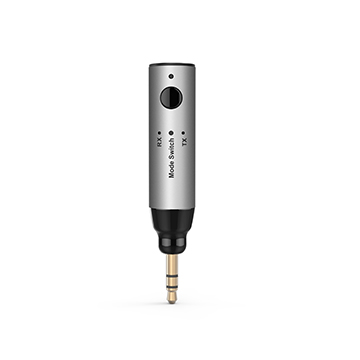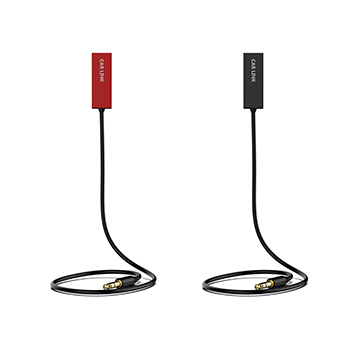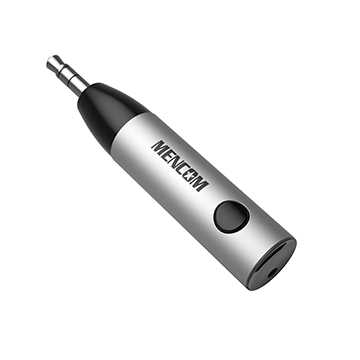SUSTAINABLE PACKAGING
Collaborating to reduce packaging and send zero waste to landfill.
Our Commitment: Reduce the amount of packaging used for our products and work toward sending zero materials to landfill In the apparel industry, waste occurs throughout the product lifecycle, from the design stage through consumer use. Packaging is a large and visible source of waste, yet it also plays a vital role in protecting products for our consumers. To optimize our use of packaging materials and preserve the environment, we are taking steps to reduce the amount of packaging on our products and use more recyclable materials. This has a significant potential to conserve natural resources. For example, 78 million tons of plastic packaging is produced globally each year, yet only 14% is collected for recycling. Further, sustainability is not the only benefit. We have also identified areas where sustainable packaging initiatives could generate a few million dollars in savings for our business.

We launched a sustainable packaging initiative in 2016 with a view to reduce and send zero waste to landfill. In particular, we assessed our on-product packaging material footprint and raised awareness of the importance of packaging reduction and recyclability across our company. We also began collaborating with our suppliers and other apparel companies on innovative packaging solutions, through groups like the Sustainable Packaging Coalition. Our focus includes packing materials, such as cardboard cartons, used to protect products while in transport, and in our store and e-commerce operations.
To help guide our business teams with sustainable packaging decisions, we have created a framework and established guidelines, centered on three “Rs” of sustainable packaging: reducing packaging (to cut waste to landfill), switching to recyclable packaging materials (to cut waste and give materials a second life), and rethinking the materials we use (innovating to find sustainable alternatives). Through our internal Sustainable Packaging Roundtable, our associates around the globe are working together to exchange and implement best practices and innovative ideas.
The three 'Rs' of sustainable packaging
As we start our journey toward zero waste to landfill, we are using the following packaging design principles:
REDUCE your packaging – Removing excess packaging means less packaging sent to landfills.
Switch to packaging that's RECYCLABLE – Recyclable materials divert waste from landfills and give materials a second life.
RETHINK your materials – Changing to materials with certifications or recycled content improves the overall sustainability of the packaging.
Sourcing raw materials and producing more sustainably.
Our Commitment: Source raw materials more sustainably to minimize social and environmental impacts along the supply chain
Sourcing high-quality raw materials is essential to our business and we are seizing the opportunity to do so in a way that generates more positive social and environmental impacts. Our sustainable materials strategy focuses on sourcing with more environmental and social considerations in respect of all materials — natural, synthetic and animal-based. We are taking action in relation to each of these three categories based on volume, risks and new market opportunities and work with each business division to determine which initiatives make the most sense for their business priorities.
Sourcing cotton more sustainably for the environment and farming communities is a particular global focus for MEEKOM. As cotton represents nearly 70% of MEEKOM' raw material use, we have set a target for 100% of the cotton we procure to be sustainably sourced by 2025. We are working toward this goal through our global membership of the Better Cotton Initiative, and by using more recycled and organic cotton in our products.
In terms of synthetic fibers, several of our divisions, including our Dress Furnishings Group and our Speedo business, are taking a lead on initiating the procurement of recycled or upcycled fibers, with a view to scale these sourcing efforts, where appropriate. We are also continuously identifying opportunities for all our divisions to feature products made with recycled polyester, with the aim of eventually sourcing recycled polyester whenever possible.
Responsible sourcing of animal-based materials has become an increasingly important issue to our company and stakeholders. Although these materials represent a very small portion of our global material footprint, we rolled out a global Animal Welfare Policy in 2017. The policy addresses animal-based materials in seven categories, including wool, leather and down.
Human Rights
Taking action and evolving our approach to human rights.
Our Commitment: Promote adherence to our code of conduct for business partners, A Shared Commitment, and go beyond compliance to improve the lives of workers within our supply chain
As a leading global apparel company with nearly one million workers in our supply chain, we have an opportunity and an obligation to uphold the rights of the people making our products and help improve their lives. Since 1991, we have required all of our suppliers to adhere to A Shared Commitment under which we assess their practices and partner with them to improve performance.
Through our CR program, we aim to strengthen our supplier partnerships, drive operational excellence, and promote remediation and capacity-building. We continuously evolve the scope and scale of our assessment program, and embed responsible business practices throughout our organization.
Factory ratings derived from our assessments inform our sourcing decisions and remediation actions, as well as determine the cadence for subsequent assessments. Better rated factories receive “green” or “yellow” ratings. An “orange” rating indicates that immediate action is required for the factory to maintain its authorization as a MEEKOM supplier. If a supplier receives a “red” rating, we end our business relationship, making a responsible exit. Throughout the assessment process, we look beyond the scope of typical audits by partnering with our suppliers to address shared goals. We share our expectations at the outset, conduct thorough factory inspections and seek workers’ views in confidence. We engage factory managers in an open discussion on the findings, exploring root causes, and support them in developing corrective action plans. We meet with our suppliers between assessments to review their progress in implementing remediation activities and provide further guidance.
Increasingly, we are moving beyond compliance by empowering our suppliers and licensees to take ownership of their supply chain performance, including labor practices, and make changes that improve the lives of workers.At an industry level, we participate in multi-stakeholder efforts to improve labor conditions, such as the FLA, and we encourage our suppliers to participate in continuous improvement programs, such as Better Work.
Safe Workplaces
Promoting safe working conditions in our supply chain.
Our Commitment: Ensure safe working conditions for workers within our supply chain
We see the workers in our supply chain as an extension of our own workforce and it is vital that they work in a safe environment. We support our suppliers in raising health and safety standards, particularly in production countries where workers are most at risk in the workplace.
We collaborate with multiple stakeholders to identify and address fire, electrical and structural risks, and drive positive change. Importantly, we recognize the pressing need to empower workers to formally voice their health and safety concerns with factory managers.
We became founding members of the Accord on Fire and Building Safety in Bangladesh in the wake of the Rana Plaza building collapse in Bangladesh in 2013 to help stop further tragedies and develop a culture of health and safety in garment factories. PVH has maintained a seat on the Accord Steering Committee since its inception. The Accord was a legally binding five-year commitment. PVH has signed onto a second Accord which took effect for a period of three years when the initial Accord expired in May of 2018. The new agreement is also binding and extends the fundamental elements of the first Accord, including independent inspections, safety committee training and an enhanced commitment to worker empowerment. The Bangladesh government will be responsible to carry on these elements after the second Accord expires.
 Bluetooth transceiver uses the CSR8675 Bluetooth chip comes with STICK ShapeX3
Bluetooth transceiver uses the CSR8675 Bluetooth chip comes with STICK ShapeX3 BULLET BLUETOOTH ADAPTER with 3.5Jack AUDIO INX6
BULLET BLUETOOTH ADAPTER with 3.5Jack AUDIO INX6 Bluetooth Transmitter and Receiver with 3 kinds of audio sources can be switchedX8
Bluetooth Transmitter and Receiver with 3 kinds of audio sources can be switchedX8 BT 5.0 CSR8675 CHIPSET SUPPORTED APTX HD with Effective RANGE UP TO 80MX5
BT 5.0 CSR8675 CHIPSET SUPPORTED APTX HD with Effective RANGE UP TO 80MX5 BTR007 Blueooth Receiver with Bean Design Good for car stereo system and speakersBTR007
BTR007 Blueooth Receiver with Bean Design Good for car stereo system and speakersBTR007 BTR006 is a Bluetooth receiver with AUX audio out-Good to use for wired headphonBTR006
BTR006 is a Bluetooth receiver with AUX audio out-Good to use for wired headphonBTR006 Slim BLUETOOTH RECEIVER for Car Stereo BT5.0 with 3.5 Jack Audio CableU2
Slim BLUETOOTH RECEIVER for Car Stereo BT5.0 with 3.5 Jack Audio CableU2 BULLET BLUETOOTH RECEIVER FOR CAR KIT WITH EU PATENTBTR005
BULLET BLUETOOTH RECEIVER FOR CAR KIT WITH EU PATENTBTR005 HIGH END TWS HEADSET with qualcomm5121 Chipset Supported aptx HDT3
HIGH END TWS HEADSET with qualcomm5121 Chipset Supported aptx HDT3 MK3000 is a 2.1Chanel 60W Power ouput Bluetooth Speaker for home theaterMK3000
MK3000 is a 2.1Chanel 60W Power ouput Bluetooth Speaker for home theaterMK3000 M8 is a 40W Power output Bluetooth Speaker for home theaterM8
M8 is a 40W Power output Bluetooth Speaker for home theaterM8

